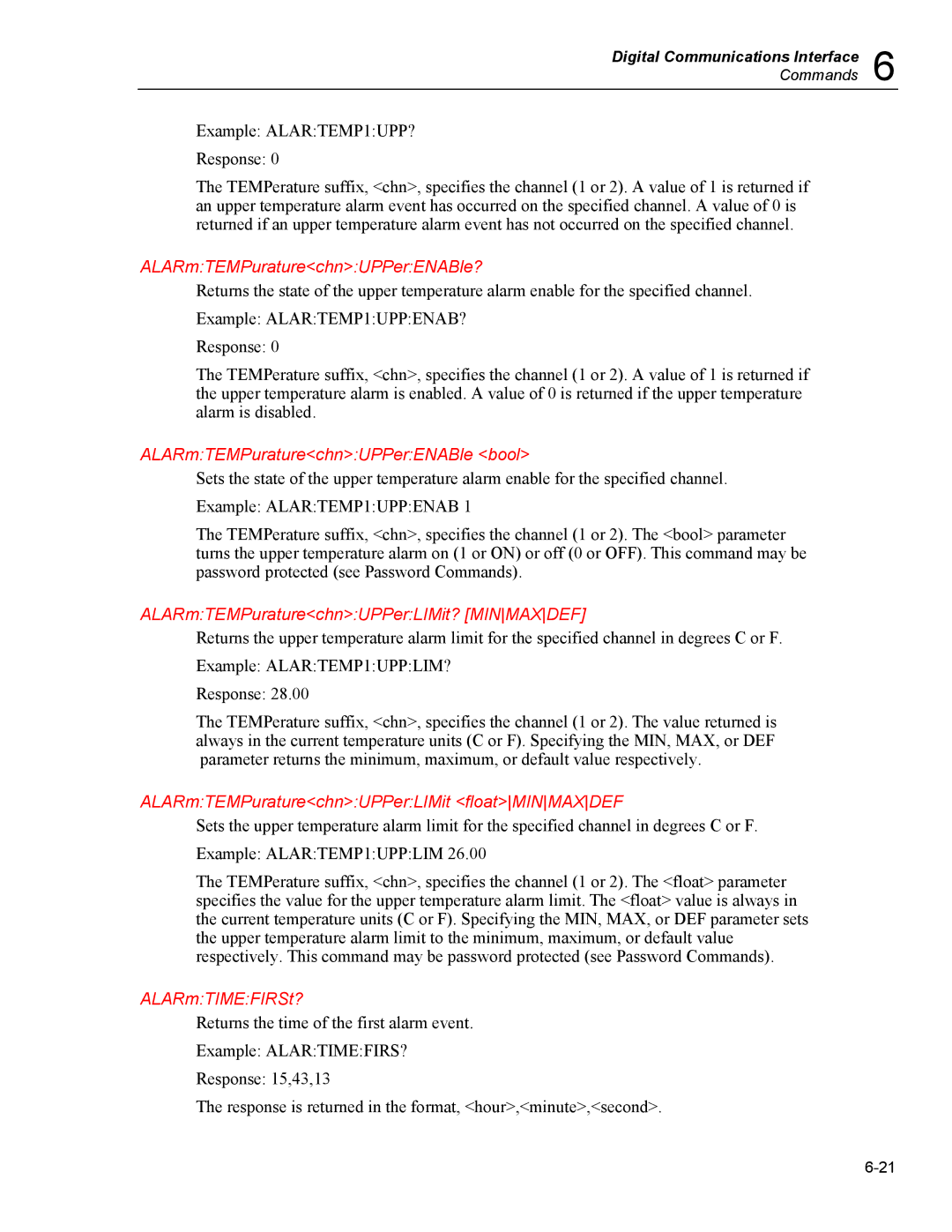Digital Communications Interface 6
Commands
Example: ALAR:TEMP1:UPP?
Response: 0
The TEMPerature suffix, <chn>, specifies the channel (1 or 2). A value of 1 is returned if an upper temperature alarm event has occurred on the specified channel. A value of 0 is returned if an upper temperature alarm event has not occurred on the specified channel.
ALARm:TEMPurature<chn>:UPPer:ENABle?
Returns the state of the upper temperature alarm enable for the specified channel. Example: ALAR:TEMP1:UPP:ENAB?
Response: 0
The TEMPerature suffix, <chn>, specifies the channel (1 or 2). A value of 1 is returned if the upper temperature alarm is enabled. A value of 0 is returned if the upper temperature alarm is disabled.
ALARm:TEMPurature<chn>:UPPer:ENABle <bool>
Sets the state of the upper temperature alarm enable for the specified channel. Example: ALAR:TEMP1:UPP:ENAB 1
The TEMPerature suffix, <chn>, specifies the channel (1 or 2). The <bool> parameter turns the upper temperature alarm on (1 or ON) or off (0 or OFF). This command may be password protected (see Password Commands).
ALARm:TEMPurature<chn>:UPPer:LIMit? [MINMAXDEF]
Returns the upper temperature alarm limit for the specified channel in degrees C or F. Example: ALAR:TEMP1:UPP:LIM?
Response: 28.00
The TEMPerature suffix, <chn>, specifies the channel (1 or 2). The value returned is always in the current temperature units (C or F). Specifying the MIN, MAX, or DEF parameter returns the minimum, maximum, or default value respectively.
ALARm:TEMPurature<chn>:UPPer:LIMit <float>MINMAXDEF
Sets the upper temperature alarm limit for the specified channel in degrees C or F. Example: ALAR:TEMP1:UPP:LIM 26.00
The TEMPerature suffix, <chn>, specifies the channel (1 or 2). The <float> parameter specifies the value for the upper temperature alarm limit. The <float> value is always in the current temperature units (C or F). Specifying the MIN, MAX, or DEF parameter sets the upper temperature alarm limit to the minimum, maximum, or default value respectively. This command may be password protected (see Password Commands).
ALARm:TIME:FIRSt?
Returns the time of the first alarm event.
Example: ALAR:TIME:FIRS?
Response: 15,43,13
The response is returned in the format, <hour>,<minute>,<second>.
